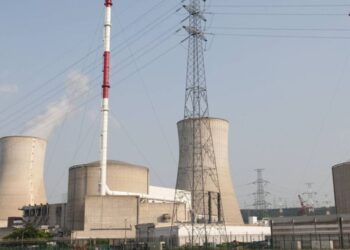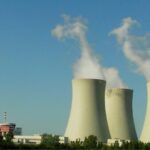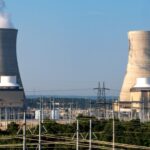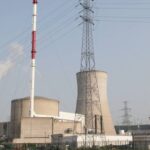The French Atomic Energy and Alternative Energies Commission (CEA) has launched two start-ups to develop a new generation of compact, flexible Small Modular Reactors (SMR) capable of digesting existing nuclear waste. This initiative aims to help big industry decarbonize while recycling nuclear waste. The CEA thus wishes to accelerate the development of Small Modular Reactors (SMR), while France has fallen behind the other major powers.
Two ambitious projects for decarbonized production by 2035-2040
The two start-ups, Hexana and Stellaria, are based on fourth-generation technologies developed at the CEA, the AMR (Advanced Modular Reactors), and are aiming for industrial development between 2035 and 2040, with two different concepts.
Hexana wants to develop two modular 4th generation reactors, sodium-cooled fast neutron reactors of 400 MW, which will be coupled with a thermal storage to power a turbine and produce electricity. They will also make it possible to recycle nuclear waste present in France, without natural or enriched uranium, but with depleted uranium associated with plutonium from reprocessed fuel from the French nuclear fleet (MOX).
Stellaria, on the other hand, wants to produce electricity and heat near industrial sites, but this time with a molten salt reactor, a less proven concept. They will also make it possible to consider “a wide range of fuels”, including French nuclear waste.
Environmental and economic benefits
These innovative reactors have many advantages. First of all, they are compact and flexible, which makes it possible to adapt them to different needs, such as supplying electrolysis units for hydrogen production, producing high temperature heat for energy-intensive industries that are highly dependent on fossil fuels (steel, food processing, cement, etc.), or supplying heat for urban networks.
In addition, these reactors allow the recovery of nuclear waste present in France, thus contributing to the reinforcement of the “energy sovereignty of the country”. Indeed, fast neutron technology is capable of burning most nuclear waste while producing little waste. In addition, France has 7,000 years of electricity production with all the depleted natural uranium reserves available in France, without the need to import uranium.
An investment for the future
The CEA, whose mission is to develop future technologies in the fields of energy and defense, has been spinning off “start-ups” for 50 years, but this is the first time it has entered the race for innovative nuclear start-ups. The French government has made the development of these innovative SMRs a priority in its nuclear revival, with the parallel construction of powerful reactors to complete the existing nuclear fleet with 6 new EPR2.
The CEA intends to accelerate the race to develop SMRs, even though France has fallen behind other major powers. Indeed, 70 to 80 SMR (3rd generation) and AMR (4th generation) reactor projects already exist in the world, notably in the United States, Canada and Russia.











